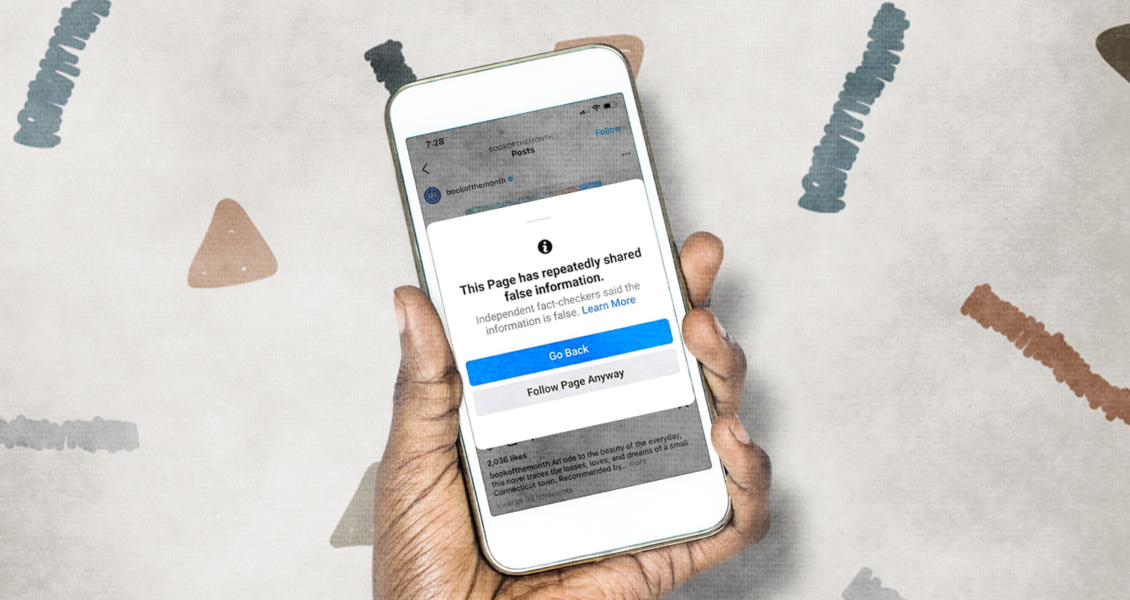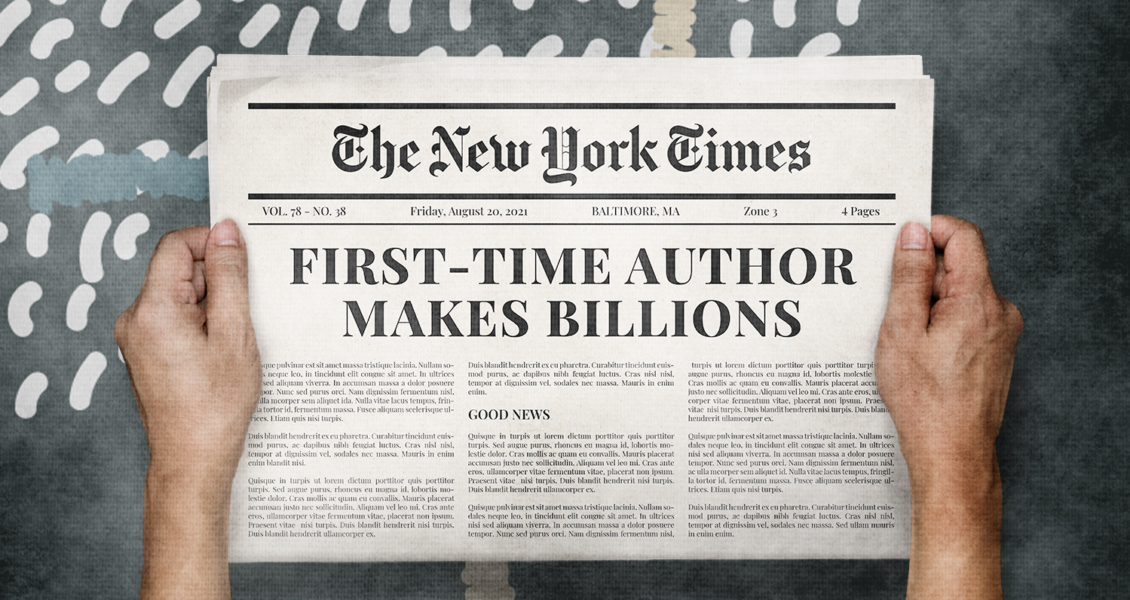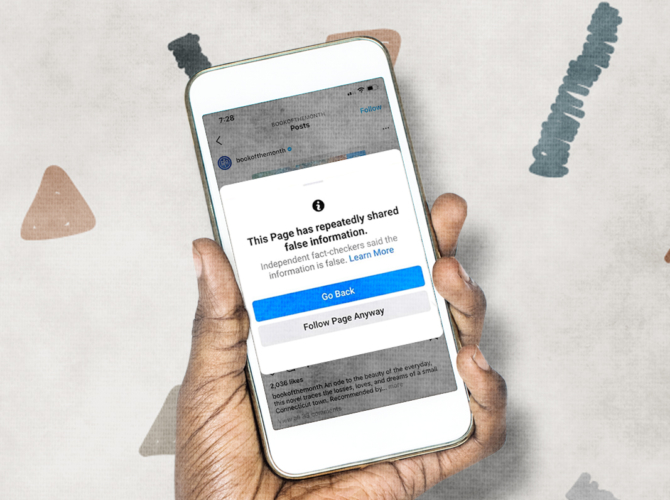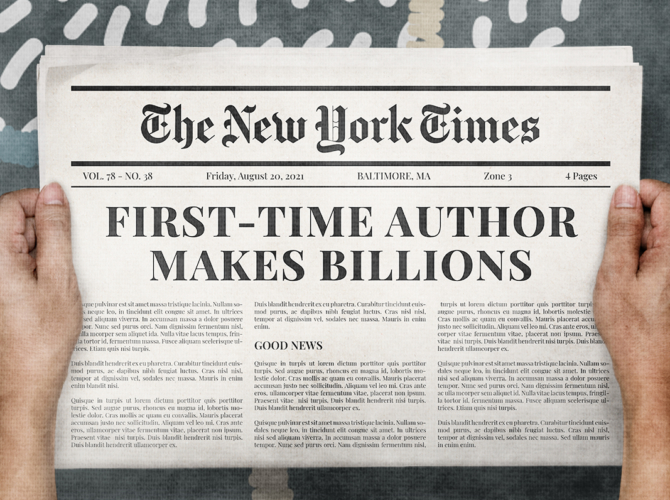Don’t Have Time Right Now?
Many people will tell you that you have to write a book. I hear it all the time—especially from people who are trying to sell some worthless marketing course on how to write a book.
They make it sound critical to your success.
But it isn’t true. You don’t have to write a book. There are plenty of successful people who never wrote a book.
The only people who have to write books are professional writers. For everyone else, writing a book is a choice, not a necessity.
So, how do you make that choice? Should you write a book?
This post lays out all the costs and benefits of writing (and publishing) a book—to help you understand what to expect—so you can decide whether writing a book is the right choice for you.
Table of Contents

The Costs of Writing a Book
Let’s start with the costs because it’s important to know those upfront. What are the costs of writing a book?
1. Time investment
The first cost is the time it’s going to take to write your book. It’s a significant investment.
At Scribe, we’ve helped thousands of Authors write a book. It usually takes them about a year.
It’s possible to write a book in 5 or 6 months—if you’re willing to put the work in—but that’s about as short as you can realistically make it.
Anyone who tells you that you can write a book in a weekend is full of it.
If your book is 50,000 words, and you write 500 words every single day, with no days off, it will take you 100 days just to write your rough draft.
At Scribe, we actually recommend 250 words a day as a good target, which would take 200 days. But let’s say for the sake of argument that 500 words a day is a realistic goal for you.
The thing is, you probably don’t want to start writing on day one. First, you have to:
- Nail down your book’s central message
- Outline each chapter to establish the book’s flow
Plus, once your draft is done, you still need to go through the process of self-editing and then professional editing.
Laying out your manuscript for publication takes time too, as does creating your cover and your marketing copy, including the book’s title, subtitle, description, and even your Author bio.
I’m not trying to scare you. You can do it in a year (or less), and our free course walks you through all of it.
It’s entirely possible. Thousands of authors have done it. I just want you to have realistic expectations about the process.
2. Financial investment
The cost of writing and self-publishing a book can range anywhere from about $1,000 to over $100,000, depending on how much you do yourself.
If you take the time to learn every aspect of book publishing, the cost can be as low as $1,000—unless you happen to be a professional cover designer.
Except for that highly unusual situation, you shouldn’t create your book cover yourself. People go to design school for a reason. If you don’t have that training, your cover isn’t going to look great—it’s going to look like it was put together by an amateur (because it was).
But the whole point of your book is to have it represent you to the world. If your book looks unprofessional, you will look unprofessional, and you would have been better off not writing a book at all. So you have to invest at least a little money in a pro designer.
You also can’t edit your own book. You can (and should) go through a self-editing step, but you need a professional editor to give it that final polish.
That has nothing to do with how good your grammar is. Even professional editors who write books get other editors to edit their books.
You’re just too close to your own writing. You can’t fully put yourself in the reader’s shoes, which is the job of a good editor.
As for that $100,000 investment, you can hire a professional company to handle the writing and publishing process for you. If they’re good, they’ll capture your ideas and outline your book, ghostwrite it, design the interior, create the cover, write the marketing copy, upload it to retailers, and maybe even do some launch day promotion … all of it.
So the total cost depends on how much of the writing and self-publishing you decide to do yourself—but there’s still going to be some financial investment no matter what.
3. Emotional investment
In terms of emotional investment, I’ll tell you right up front:
Writing a book changes who you are.
That’s not easy to accept.
Most people prefer the pain that they know to the joy that they don’t. Change is uncomfortable, and writing the kind of book that’s worth writing will make you feel vulnerable and exposed at some point during the process.
It won’t happen every day, but it will probably happen more than once. After more than 6 years of helping Authors through Scribe, I can tell you that every Author goes through it.
But when the book is done, Authors love that it happened, and they’re grateful that they went through the process.
Growing as a human being isn’t a bad thing. It’s a great thing.
But it’s definitely something you should be prepared for when you’re deciding whether or not to commit to writing a book.
4. Cognitive investment
Finally, if you’re considering writing a book, you’ll need to accept the fact that you’ll have to do a lot of learning and thinking—even if you’re writing about something you know a lot about.
Don’t assume you’ll have a super easy time of it and that you already know everything you need to know. You don’t.
Even if you already know all the content of your book, you’ll still have to do some real thinking about how to present that knowledge in a way that will engage your reader.
Be prepared for that work.

The Benefits of Writing a Book
Now that you know the costs, let’s switch to the fun part. What are the rewards of writing a book?
1. Money
The first and most obvious reward for writing a book is the money you can make from it.
Books are one of the best ways to make money, but I’m not talking about book sales. I’m talking about using your book as a marketing tool to promote yourself or your business.
Depending on the business you have and the way you’re using your book, it’s entirely possible to make millions of dollars from it. I’ve seen it happen.
Bryan Miles, for example, wrote a book called Virtual Culture. He owns a company called Belay that hires out virtual assistants, virtual bookkeepers, web specialists, and social media strategists.
The book added at least a million dollars to his top-line revenue in just the first year—he’ll tell you that himself.
But he didn’t make that money from book sales. He made it from what the book—and the book’s exposure—did for his business.
Bryan isn’t an exceptional case. I have a library full of books just from Scribe alone, and many of those Authors have made a lot of money because of what their book did for them professionally.
2. Authority & prestige
The very act of writing and publishing a book will elevate your prestige and authority. The second you tell people that you wrote a book, you’ll see it in their eyes.
They look surprised…interested…impressed. “She wrote the book on it” is an expression for a reason.
Writing a book can help you:
- Establish authority in your field
- Raise your visibility & prestige
- Display credibility & expertise
- Get media attention
- Get people to talk about you
All of those things can help you make money by bringing in more clients (or more lucrative clients), opening up new job opportunities, etc.
But they’re also rewards in their own right. The benefits you get from writing a book aren’t always tangible or measurable, but they still have an effect on the rest of your life.
Robin Farmanfarmaian, for example, is an expert in the medical and patient tech space. But many older male investors treated her like an assistant when she showed up for meetings, assuming she was there with someone else—that is, until she wrote her book: The Patient as CEO.
The book launched a series of TED talks and other appearances, raising Robin’s profile and changing the way people saw her.
Today, they know who she is before she even walks into the room.
3. Personal growth
Another less tangible but extremely valuable benefit of writing a book comes from the personal growth you’ll experience in the process.
Remember how I said that writing a book changes you? The very process of writing a book involves:
- Learning new skills
- Learning about yourself
- Proving to yourself that you can do something hard
- Knocking it off your “bucket list”
- Putting you in a new, high-level peer group—you’re going to be an Author
Dr. Douglas Brackmann wrote a book called Driven. That book earned him a special message from his 80-year-old father, a man of few words who NEVER reads self-help books. He surprised his son by praising the book in an unsolicited text message.
You can’t put a price on that kind of father-son moment, especially in a relationship that had been deeply troubled when Brackmann was a teen.
4. Impact on others
That note from his dad isn’t the only thing Brackmann’s book gave him. Far from it. It’s just the thing that matters most to him personally.
The book also tripled Brackmann’s revenue and received dozens of 5-star reviews on Amazon from people thanking him for changing their lives.
I don’t know how to measure that value, but I do know that a book is one of the absolute best ways to scale your influence on other people and create a real impact in the world.
Here’s another example:
Khalil Rafati, now the owner of SunLife Organics in Malibu, California, wrote a memoir, titled I Forgot to Die, about his experience with drug addiction.
The book ended up being profiled by The New York Times and is now required reading at several addiction recovery centers. He’s sold hundreds of thousands of copies and impacted thousands of lives just by telling his story.
5. Legacy
By its very nature, a book proves that:
- You existed
- You had something to say
- Your life and your work mattered
- You contributed something to the world
Lorenzo Gomez helped build RackSpace, a large web hosting company. He then went on to become the CEO of Geekdom and co-founder of The 80|20 Foundation.
And yet, he has no college degree, and he barely graduated from high school.
Gomez wrote his book, The Cilantro Diaries, to encourage young people who don’t have the means for a college education to believe in themselves and find their own path forward.
His story of rising from a grocery store stockroom to a high-tech boardroom became an inspiration to thousands. It’s now required reading at Texas A&M, College Station, in the department of rural entrepreneurship, and because of that book, he gave the commencement speech for UT-San Antonio–even though he never attended college.

Dispelling a Few Myths About Writing a Book
If you read through all the costs and benefits of writing a book and you’re still interested in moving forward, that’s fantastic!
I’m personally biased, of course, because I chose to write books myself—but also because I personally believe that everyone on Earth should write a book.
To tell you why, I need to break down a few myths about what it takes to write a book.
Myth 1: You have to be THE expert to write a book
Before they become Authors, many people I meet feel like they shouldn’t write a book, or even that they can’t write a book, because they’re not THE expert in their field.
That is 100% not true.
Here’s the truth:
Expertise and knowledge work like a ladder.
If you’re even 40 or 45% of the way up the knowledge ladder of your field, all the people who are lower on that ladder could benefit from what you’ve learned. Especially the ones who are still on the floor and don’t know how to get started. They need you, and they need your knowledge.
In fact, the people at the top of the ladder usually aren’t the best ones to teach the people at the bottom. They’re too far beyond the starting point to understand what those people need to hear—and they started out too long ago for that specific experience to be applicable now.
But here’s the other thing: you also have insights that the people “above you” on the ladder haven’t realized or thought of.
As a human being, you have a unique perspective that other people can learn from. Period.
Myth 2: You have to be special to write a book
Let’s say you believe the ladder concept, but you want to argue that you’re at the very bottom of your field. Or that you don’t even have a field.
If you could, you’d tell me that you don’t have any special knowledge at all.
First of all, I’d argue with you about that all day long. I think you’re wrong about that. But even if you were right, I’d still say you should write a book.
Why? Because even if you just tell your story, that story will matter to someone—and you should tell it for them.
Let me give you a personal example. I was raised Catholic. My whole family is Catholic. My father, my grandfather, my great-grandmother—all Catholic.
So you can imagine my surprise when I did the 23andMe DNA testing and discovered that we were Jewish. My great-grandmother was 100% Jewish. She left Hungary, changed her name, and changed her religion—and I have no idea why.
I can guess based on some generalities, but I don’t know her story.
I would give anything to know that story—who she was, what she thought, and why she did what she did.
But, like most people, she never wrote a book. She probably didn’t think her story mattered. And now that knowledge is lost forever.
So my question to you is this:
Where is that true in your life?
Where are you not sharing your story, or holding things back that could help other people?
Those people don’t have to be your great-grandchildren, by the way. The person your story could help might be someone you’ll never meet—someone who’s struggling with the same things you’ve struggled with.
Someone who could use your story to map their way out of that pain and save themselves.
Even one person. Wouldn’t that be worth it?
What would you have given to have a book that could have helped you?
That’s why we started Scribe, and it’s why we give all this information away for free. Because we want people to tell their story, or share their knowledge, or both—to help other people.
Myth 3: You have to be a courageous person to write a book
You do NOT have to be a super courageous person to write a book.
At least, not exactly.
What is true is that you’ll have to face your fears to write a book.
But you don’t need some kind of special courage to do that. It’s not something that some people have and some people don’t.
Every Author who ever wrote a book had to face their fear to do it. Including me.
Every time I write a new book, I have to face those fears all over again.
- What if it’s not good enough?
- What if it’s boring?
- What if I don’t want the attention?
- What if I don’t want to share my pain?
I could go on and on. But here’s the thing: everyone feels that way. Everyone who ever writes a book feels that way.
And nobody wants to share their pain. Not publicly. Not openly and vulnerably.
But that’s exactly what other people need. When we hide our own pain, we deny someone else their way out.
I’ve helped thousands of people write a book, and they’ve all struggled through their fears to do it. I’ve seen people who made millions of dollars with their book struggle through the process of writing it, feeling like it wasn’t good enough.
So you don’t need to be unusually brave to write a book. You don’t need to be some special kind of person or have some special kind of story.
But it’s definitely hard to write a book.
And you don’t have to write a book.
It’s your choice.
I just don’t want you to decide not to because you think you can’t or you shouldn’t.
You can, and you should. But you don’t have to.

Dispelling Unrealistic Expectations
Last but not least, there are a few unrealistic expectations about being an Author that I see a lot. I’m going to dispel those, too, before you can make your final decision.
I want you to write a book. That’s no secret by now. But I want you to do it with your eyes open.
Unrealistic Expectation 1: “My Book Will Sell Millions of Copies!”
The first unrealistic expectation is about book sales. Some Authors go into the process of writing a book thinking their book will sell millions of copies.
That’s deeply unrealistic. Let’s look at some numbers:
- According to the best estimates, the average non-fiction book is now selling less than 250 copies per year and less than 2,000 copies over its lifetime.
- Bowker estimates that in 2015, there were about 1 million new books published (that’s total books, not just non-fiction).
- That’s on top of the 13 million+ that are already in print (again, all types of books).
- There’s a large book supply, but not a big market. Total US book sales in 2015 were only 256 million print copies, and that includes all adult non-fiction categories combined. That’s a little less than 1 book per person sold in the US.
- According to BookScan, only about 250 books per year reach 100,000 copies sold.
- There are even fewer books that sell 1 million copies in a year, probably around 20 (and almost all of those are fiction).
- The list of books that have sold 10 million copies in history is so small there’s a Wikipedia page about them.
The facts are clear: very, very few books sell a ton of copies. In fact, if you sell even 10,000 copies of a non-fiction book, that’s very good.
But none of that matters.
Like I said early on, the best way to make money with your book isn’t through book sales. It’s by using it as a marketing tool to promote yourself or your business.
You can use a book to get clients or paid speaking gigs, promote your company, raise money for a fund, or launch a brand. There are dozens of ways you can use a book to make money.
Often, a lot of money.
Just don’t count on doing it through book sales.
Unrealistic Expectation 2: “My book will be a New York Times Bestseller!”
Here’s the deal with bestsellers.
The New York Times Bestseller List is the most prestigious list of book sales, but for dubious reasons. The thing most people don’t understand is that the bestseller list is, plainly put, a racket. The only way to get on it is to have a huge pre-existing audience or to “cheat” by buying your own books through bookstores (to make it look like your book is more popular than it is).
Yes, people do that. It can and does happen. This is because hitting the New York Times Bestseller List is expensive, time-consuming, and an immense amount of hard work.
And here’s the worst part: it doesn’t get you much.
Really. It doesn’t. Pause for a moment and ask yourself:
- What are your three favorite books?
- Were any of those books bestsellers?
When I ask people the second question, there’s usually a stunned silence, and then the inevitable answer: “Wow. I have no idea.”
Again, it just doesn’t matter. Being a bestseller isn’t the point of writing a book.
Instead, think of it more like this: a book is the new college degree.
About 40 years ago, only something like 15% of the adult population had college degrees. If you had one, it was a major signal of credibility and authority. It meant something.
But now that more than 70% of people are going to college, a degree doesn’t signal much credibility anymore. It’s just not that big a deal.
But a book is a credential that’s still very credible and meaningful. Why? Because it’s hard to write and publish a book—especially a good book.
You can’t fake your way into a good book. Either you know what you’re talking about or you don’t. Either your book is professional, or it’s not.
A book also shows that you can commit to something and follow through. It shows that you can get things done—things that are hard and prestigious and require skill.
Yes, writing your book is emotionally risky. You’re really putting yourself out there. But that’s why you get so much credit for doing it.
Unrealistic Expectation 3: “A book will make me famous.”
Many people want to be famous, and they think a book will do that for them.
It won’t.
For one thing, there are very few famous authors. Start naming some, and you’ll realize quickly that 80% or more of the ones on your list are dead (Hemingway, Twain, Lee, Tolkien, etc.)
Writers are almost never become celebrities because of their books (especially not first-time authors). In most cases, it’s the other way around: people get famous for something else (politics, business, acting, sports, etc.), and then they write their book.
In fact, there are only about 15 living people who are famous for writing (and nothing else). Malcolm Gladwell is one. JK Rowling is another. You can probably name a couple more. Not 10 more. Definitely not 20.
There are a lot of famous people in America, but they all got famous some other way. But that doesn’t matter.
You don’t have to be a famous author to write a successful book.
Every one of the authors I’ve mentioned so far in this post wrote a wildly successful book that helped them make a lot of money. But I bet you had never heard of any of them before I told you who they were.
A book—by itself—will not make you famous. But a book CAN help you become more well known in your industry.
When a media outlet wants a comment on something, who do they go to? The expert, right? And how do they know someone is an expert?
Because they wrote the book. Once you have a book, media coverage is 10x easier to get.
It works in a LOT of arenas: lecture halls, television studios, podcasts, boardrooms, media pages, special events, even people’s minds. The gatekeepers all want you to have a book before you can get in.
Think about it. Larry King doesn’t say, “My next guest just posted a cat video.”
If you want media coverage and visibility in your field, a book is the key that opens the door.
Of course, a book doesn’t guarantee any of that. But you can use it to get there if you do the work—the hard and tedious work—over and over.
Reach out to journalists. Post excerpts on LinkedIn. Talk about your book idea on social media. Maybe even do podcasts and webinars about your book.
Get involved and use it, and it will work for you.
Unrealistic Expectation 4: “Writing a book will be glamorous.”
People have a lot of fantasies about the writing process, and almost all of them are nonsense.
We all say we want to be rich, lose weight, start a business, etc.
But it’s the idea of being rich or skinny or an entrepreneur that’s more appealing than actually putting in the work to do it. The idea sounds glamorous, and we want that glamour.
Here’s the thing: glamour doesn’t come from writing with a fancy pen, or wearing high-tech gym shorts, or designing a fun logo for your new startup.
Glamour comes from doing the hard work to deliver something other people find valuable.
Did you notice what’s missing from those glamorous fantasies about writing?
Any talk about the actual writing.
Book writing is hard, not glamorous. Any Author who went through it and came out the other side will tell you that.
But that’s okay. If you go into it with the right mindset, you’re not writing your book to feel glamorous. You’re doing it to help people. And maybe, if you put that work in, to catapult your own career to the next level.
Books provide authors all kinds of opportunities—including plenty they weren’t even expecting.
How? Here’s how it works:
The #1 search engine is Google. #2 is YouTube. Do you know what #3 is?
Amazon.
And it’s the TOP search engine when people are looking for products and services they need (in fact, a full 44% of searches for products and services start there).
Think about it—how many times have you had a problem and tried to solve it by finding a book about it?
Wouldn’t you love to be the person who wrote the book on how to solve that problem? All those people would be coming to you for answers.
THAT’S how it works—a book brings people to you.
It lets them know exactly who you are and shows them how you can help them. It’s the best marketing tool you could ever use, not just to build your brand, but to attract clients.
Here’s another personal example: when we started this company, we realized we had a rocket ship that we didn’t know how to fly. We needed to learn how to scale our company.
What did I do? I went to Amazon to read books on the subject.
As it turns out, there aren’t a lot of great books out there about how to professionally manage and scale a fast-growing company. The best I could find was written by Cameron Herold (it’s called Double Double).
I read the book and thought, “This is genius. But I need this guy to coach me directly.”
I reached out to Cameron, and now he advises our company. That’s how valuable he’s been. And all because he had a really good book that led me to him.
There are probably 500 other people out there who could have taught me the same things, but Cameron is the only one who had a great book I could read, to decide that he was the guy to teach me.
I never would have listened to a sales pitch or paid attention to an ad. I had to see proof, and his book was it. It made me come to him.
Why Do Unrealistic Expectations Hurt Your Book?
At this point, you might be wondering, “Hey, what’s wrong with dreaming about hitting it big? Some books sell millions of copies and become bestsellers. Why not hope for the best?”
There’s nothing wrong with wanting your book to sell. But the problem with unrealistic expectations is that they make you write the wrong book.
If you write your book with the goal of selling a million copies, you’ll try to write a book that’s for everyone. Which is the WORST thing you could do.
The BEST strategy for a book, the one that led to all those success stories I told you about, is to reach a niche audience. That’s the key to raising your authority and credibility.
If you write your book with the goal of becoming famous, you’ll focus on how the book makes you look. That STOPS you from being authentic, open, and vulnerable for your audience, which are all the qualities that make a book great.
You’ll end up with a mediocre book that isn’t going to help anyone.
Getting the most out of your book is a lot like the Zen koan about the target and the prize:
“Focus on the target, and you’ll hit it. This gets you the trophy. Focus on the trophy, you’ll miss the target. This gets you nothing.”
Books work the same way. If you write with unrealistic expectations, you’ll focus on the fantasies and end up with nothing.
But if you focus on your audience and their needs, if you write your book to help that one person out there who really needs it, you’ll write a great book—the kind of book that can really make a difference, both to you and to your readers.
Final word
Okay, I know this was a long post. But writing a book needs to be your choice, and you can’t make that choice if you don’t have all the information.
Also, I have something to confess:
If (when) you decide to write your book, I want you to finish it.
And I want you to be thrilled with the result.
Here’s the thing:
If you were to sit down today and start writing randomly, without a plan, without outlining, without knowing what you’re in for, I’m telling you right now, you won’t finish that book.
You’ll hit a wall, and you won’t be able to find your way over it.
- You’ll get blocked when you suddenly realize you don’t know where your book is going or what to write next.
- Or you’ll get blocked when the initial excitement wears off, and all those fears I mentioned rear their ugly heads to stare you in the face.
- Or you’ll get tired of it a few weeks in because you weren’t expecting the process to last a whole year.
- Or the very unglamorous reality of writing will just plain disappoint you.
Whatever wall you run into first, you’ll get stuck there, and that will be that.
So I wrote this post to prepare you.
That’s the truth.
It’s your choice whether or not you write a book.
But I want you to write it.
I want you to finish it.
And I want you to know the joy of holding that book in your hands.






